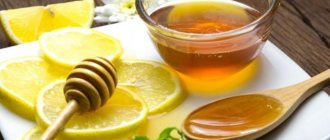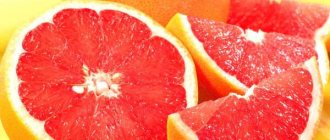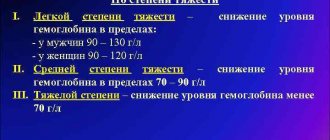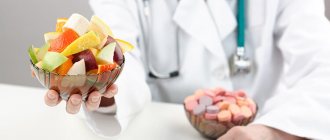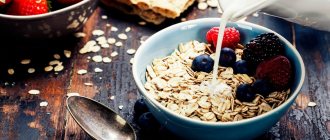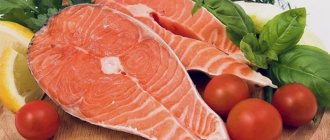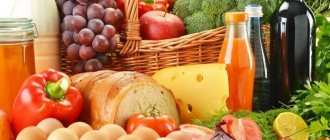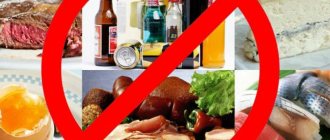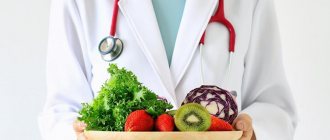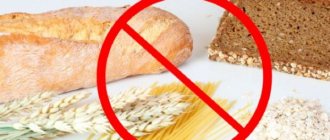One of the most common chronic skin diseases is psoriasis. It is also known as lichen planus. It appears in the form of red, dry formations - psoriatic plaques, which can appear on various parts of the body. Despite the fact that they generally do not threaten health, the formations cause a lot of inconvenience, expressed in the form of burning and itching. You will find out what foods you should not eat if you have psoriasis and their list in our article.
In adolescence, psoriatic plaques can affect a person’s mental state, as they represent a cosmetic defect. It is impossible to completely get rid of the disease at this level of medical development, but stable remission can be achieved. Thanks to her, the formations will not remind of themselves for a long time.
To get rid of the symptoms of psoriasis these days, various methods are used. In order for the selected treatment regimen to be as effective as possible, a number of foods should be excluded from the diet. Thanks to this, it will be possible to normalize the acid-base balance, which affects reactions on the human skin. On the contrary, a number of products will need to diversify your daily diet.
Nutrition for psoriasis: what are its features?
It is believed that important prerequisites for the development of psoriasis are metabolic disorders, improper functioning of the gastrointestinal tract, intestinal imbalance and dietary errors. Therefore, it is extremely important to take a responsible approach to creating a menu that will provide the body with the necessary vitamins, minerals and nutrients. In addition, proper nutrition for psoriasis implies an increase in the body's defenses, since a strong immune system copes better with the factors that provoke the manifestations of the disease.
The diet for patients with psoriasis involves a number of very strict restrictions. At the same time, it sufficiently supplies the body with the necessary substances and vitamins, and if used correctly, does not affect performance. Therapeutic nutrition for psoriasis is a balanced, proper diet that helps improve your health and increase periods of remission.
Comments from nutritionists. Pros and cons of the diet.
By adhering to the principles of proper nutrition, you can correct disrupted metabolic processes, restore the body’s self-regulation function, the acidity of the gastrointestinal tract, and also prevent the exacerbation of skin reactions.
“The right choice of a sanatorium is a significant step towards maintaining and increasing health. “Gorny” is a resort complex that combines the experience and knowledge of Russian and Soviet balneology. The presence of modern medical equipment and innovative installations, the professionalism of the staff and love for their work will serve as the key to extending longevity,” - head doctor of the sanatorium Alexander Olegovich Karaulov.
Diet for psoriasis: table of foods allowed for consumption
| Allowed | Allowed in limited quantities | Forbidden |
| Foods rich in coarse fiber (fiber). Polyunsaturated fatty acids. Foods rich in calcium and zinc. Vitamins and antioxidants found in fresh fruits and vegetables. Vegetable oils. | Lean meats. Chicken eggs. Sea fish. Dairy and lactic acid products. | Sugar and sweeteners made from it. It is recommended to replace them with stevia and maple syrup. Chocolate. Coffee. Artificial preservatives, dyes, flavor enhancers, flavorings. Nightshade vegetables. Alcoholic drinks. Carbonated drinks. |
Healthy foods
For psoriasis, any fermented milk products are useful, but only low fat. Nutritionists recommend that patients more often consume soft cheeses without spices, Varenets, fermented baked milk, yogurt, and kefir. Children's diets should include cottage cheese and drinking yogurt without dyes or flavors. The following products should also be included in the weekly menu:
- boiled eggs or omelettes;
- lean meats - turkey, rabbit, chicken breast, lamb;
- fatty fish - salmon, Norwegian herring, sardines;
- dried whole grain bread;
- cereal porridges - buckwheat, millet, wheat, corn;
- salads from white cabbage, beets, parsley, seasoned with any vegetable oil;
- zucchini, greens and celery root vegetables, carrots.
Products must not be deep-fried or fried. They should be simmered in a small amount of water or baked. Steamed vegetables, meat or fish retain the maximum possible amount of nutrients, macro- and microelements, fat- and water-soluble vitamins.
Nutritionists recommend eating fruits and dried fruits as desserts. The daily consumption of figs, dried apricots, pineapple, grapes, cherries, peaches, and dates is especially beneficial. Of the citrus fruits, only grapefruit is allowed. The thick peel of the fruit must be cut off. Don't forget about nuts (walnuts, cashews, pistachios, hazelnuts), pumpkin and sunflower seeds. They perfectly alkalize the body, minimizing the risk of relapse of psoriasis.
Pegano diet for psoriasis
Dr. John Pegano is an osteopath who has successfully treated skin diseases using the nutritional system he developed. For many years he worked to create an optimal diet to help patients reduce the symptoms of the disease - and he succeeded. John Pegano released a book dedicated to the diet he developed, called “Treating Psoriasis - The Natural Way.” The doctor spoke with her at scientific and popular seminars in different countries, took part in television and radio programs, thanks to which a large number of people learned about his method.
How is the Pegano system fundamentally different from drug treatment of psoriasis? Dr. Pegano was a proponent of the belief that the human body is capable of fighting pathological processes on its own, without the help of drugs. To do this, the patient must comply with certain requirements: eat right, detoxify and have a positive inner attitude.
The main principle of proper nutrition according to Pegano for psoriasis is maintaining an optimal acid-base balance in the blood, which becomes possible through the consumption of certain foods, avoiding junk food and following a diet. According to Pegano, an important prerequisite for the development of psoriasis is excessive blood acidity. Therefore, in the case of eating foods that contribute to alkalization, a noticeable improvement in the patient’s condition is observed. The ratio of alkali-forming and acid-forming foods in the diet menu for psoriasis according to Pegano should be approximately 2:8. That is, 20% of permitted products should account for 80% of mandatory ones.
According to Pegano, the main focus when treating psoriasis with diet should be on fruits, vegetables (except nightshade vegetables), freshly squeezed juices, herbs and clean still water. Despite the fact that some of these foods taste sour (for example, citrus fruits), this should not bother you: once they enter the body, they still increase the alkali content in the blood.
Acid-forming foods should also be present in the diet, but in much smaller quantities. These mainly include protein foods (meat, fish, dairy products, legumes), as well as simple carbohydrates (sweets, refined sugar, potatoes and other starchy vegetables, vinegar).
The food products that are strictly prohibited from an effective diet for psoriasis include alcoholic beverages, coffee, preservatives, carbonated drinks, tomatoes and their juice, eggplants, fried, spicy, salted and smoked foods.
During the diet for psoriasis according to Pegano, the menu for the week should begin with fasting days. Usually, 3-5 days are enough to cleanse the intestines. At this time, you can eat only fruits (usually apples or citrus fruits), supplementing them with enterosorbents. After the specified time has passed, the patient can begin consuming approved products. These include:
- Fresh vegetables and fruits (citrus fruits, watermelon, papaya, mango, melon, grapes, peach, pineapple, garlic, asparagus, spinach leaves, broccoli, parsley, asparagus, celery, zucchini, zucchini, pumpkin, carrots, olives). Please note: do not combine citrus fruits with dairy products or grains.
- Cereals (wild rice, millet, wheat).
- Nuts (almonds).
- Bran.
- Whole wheat bread.
- Vegetable oils (especially olive oil).
- Porridges cooked in water.
- Lean meats (in limited quantities). It is advisable to give preference to lamb, poultry, and sometimes you can eat a small piece of pork.
- Fatty sea fish. Shellfish, crustaceans, and sushi are excluded.
- Dairy and lactic acid products (in limited quantities).
As for the drinking regime, it is advisable to drink about 1.5 liters of pure still water per day, as well as drink freshly squeezed juices, herbal teas, ginger and green tea.
You can start following the Pegano diet for psoriasis only after consulting a doctor. This limitation is explained by the large amount of plant foods and low animal protein content. For example, people who have problems with blood formation or allergies to citrus fruits are not recommended to follow such a diet.
If you really want the therapeutic hypoallergenic diet according to Pegano to help you during psoriasis, you need to not only adhere to the nutritional rules, but also comply with additional requirements. These include stopping smoking, taking medications (except for vital ones), reducing stressful situations and negative emotions, daily rest and relaxation, accompanied by reading your favorite books and listening to soothing music, performing feasible physical exercises aimed at strengthening the spinal column.
As for the duration of this diet, it is advisable to follow it for at least a month - only after this period the first results will become noticeable. If you want to reduce the time of exacerbation of the disease and prolong remissions, it is recommended to adhere to it throughout your life.
Due to its low calorie content and the presence of a large amount of vitamins obtained from fruits, vegetables and juices, following the Pegano diet for psoriasis not only helps reduce the manifestations of psoriasis, but also contributes to the overall health of the body. This nutrition system allows you to adjust your weight, get rid of extra pounds, and also improve your immunity.
General rules. Duration of the diet.
Psoriasis is a chronically relapsing disease. However, properly selected nutrition is the key to long-term remission and good health of the patient.
The diet is based on several principles:
- Meals are shown in small portions at intervals of three hours.
- Minimizing salt and salty foods in the diet.
- Eliminating fried foods from the diet.
- Recommended cooking methods are steaming, stewing and boiling.
- Including foods rich in plant fiber in your diet.
- Complete abstinence from alcohol.
- Drinking regime. Daily water consumption is 2-3 liters.
Diet for psoriasis of the scalp and other parts of the body according to Ognevaya
Like John Pegano, Dr. Svetlana Mikhailovna Ogneva pays great attention to improving the acid-base balance of the body. The list of foods that are prohibited for psoriasis, according to her views, largely coincides with a similar list presented by Dr. Pegano. However, Ognevoy’s nutritional system is still somewhat different from that proposed by the American osteopath. What are its features?
- The duration of proper nutrition for psoriasis for a woman, man or child should be more than 3 months. Only during this time the body is able to cleanse itself of waste and toxins.
- It is forbidden to both overeat and starve.
- Once a week you need to have a fasting day.
- The consumption of any legumes is prohibited.
- It is advisable to avoid red meat.
- It is recommended to avoid eating fish roe (even among approved fish varieties).
- It is allowed to consume low-fat lactic acid products, but you should not drink cow's or goat's milk.
- The category of prohibited fruits includes citrus fruits, avocados, pomegranates, raspberries, wild strawberries and strawberries.
- The skin of the fruit must be cut off.
- When on a diet, it is advisable to avoid meat by-products (liver, kidneys, tongue, lungs, etc.)
- Patients with psoriasis will have to give up baked goods made from white flour.
- Sausages, frankfurters, sausages, smoked meats, balyki, margarine, butter, cream, cheese, vinegar - all these products are classified as forbidden.
- Any sweets are strictly prohibited - cakes, pastries, chocolates, sugar, sweet carbonated drinks.
- Dr. Ogneva recommends supplementing the diet for psoriasis with the use of alkaline mineral waters, herbal decoctions and teas. At the same time, all alcoholic drinks, cocoa and coffee are strictly prohibited. It is also advisable to give up black tea and replace it with herbal tea.
- It is prohibited to drink food with water. You can drink only half an hour after eating. In this case, it is advisable to give preference to cold water, since, according to the author of the technique, it is better absorbed by the body.
- If the body needs prohibited foods for normal well-being (for example, liver for patients with anemia), they are allowed to be consumed in small doses and always not on an empty stomach.
- To preserve all the beneficial substances, it is recommended to cook food in a double boiler or bake it in a sleeve. You will have to give up frying, smoking and pickling.
- The author of the method believes that there is no need to take additional vitamins and multivitamin complexes during the diet.
Before starting this diet, be sure to consult your doctor.
Vitamin therapy
A diet for psoriasis often leads to a deficiency of vitamins and minerals. It is important to ensure their additional supply with the help of a correctly formulated diet or multivitamin complexes.
An important element is ascorbic acid. It improves immunity and helps resist psoriasis. Vitamin E, which has an antioxidant effect, is indispensable. It improves the condition of the skin and eliminates the manifestation of the disease.
B vitamins also have a beneficial effect on the condition of the skin and regulate the functioning of the nervous system: it is disruptions in its functioning that lead to an exacerbation of psoriasis.
Useful minerals are zinc and calcium. They accelerate tissue regeneration and ensure healing of psoriatic wounds.
What else is important for the treatment of psoriasis, besides diet?
Following the basics of proper nutrition for psoriasis, eating simple foods and avoiding overeating plays an important role in combating the disease. To enhance the positive effect of a diet for psoriasis, you can (and should!) use skin care products that help it recover faster after periods of exacerbation of the disease. La-Cri products are well suited for this purpose; they are made from natural ingredients and do not contain fragrances, parabens or hormones. Thanks to their balanced and harmless composition, these products are suitable for use by people with sensitive skin, as well as pregnant women and children. Regular use of La-Cri medicinal cosmetics helps reduce rashes, redness, peeling and itching.
General principles
In order for your diet to improve your psoriasis condition, follow the basic principles of a balanced diet. Eliminate all hyperallergenic foods, give up bad habits (alcohol, smoking). Eat small, frequent meals. The last meal should be at least 2 hours before going to bed.
The basis of the diet for psoriasis should be fiber (fresh vegetables, fruits), cereals, and dairy products. Drink plenty of water: at least 2.5 liters per day.
To prepare dishes, use the boiling or baking method. Fried foods are completely excluded because they are difficult to digest and contain carcinogens that complicate the course of the disease.
Clinical researches
TM La-Cri products are recommended by the Union of Pediatricians of Russia. Clinical studies conducted by specialists have proven the high efficiency, safety and tolerability of products, including for daily skin care of children with mild and moderate forms of atopic dermatitis and during remission, accompanied by a decrease in the quality of life of patients.
Many remedies are recommended by the Union of Pediatricians of Russia.
Sources:
- Schneiderman Paul, Grossman Mark, Differential diagnosis in dermatology. Atlas, Binom, 2021.
- Reken Martin, Schaller Martin, Sattler Elke, Burgdorf Walter, Atlas of Dermatology, MEDpress-inform, 2021.
- Yagodka Valentina Stepanovna, Medicinal plants in dermatology and cosmetology, Naukova Dumka publishing house, 1991.
Rules for creating a diet
Treatment of a skin disease such as psoriasis must be comprehensive. Thus, dermatologists prescribe systemic medications, local remedies, and physiotherapeutic procedures to patients with the appropriate diagnosis. Folk (home) methods of combating the disease can be an auxiliary measure - decoctions, infusions, tinctures, ointments and other compositions based on medicinal plants help relieve discomfort on the skin.
Nutrition plays an important role in the treatment of illness. Thus, experts recommend carefully monitoring not only your diet, but also your eating habits.
The menu for psoriasis should be selected in such a way that it is possible to control the acid-base balance in the patient’s body (it is the violation of this balance that is considered one of the factors causing relapses of the disease).
The diet menu for psoriasis for the whole week should be as simple as possible, but at the same time varied. It is very important that food supplies the patient’s body with not only the required daily amount of nutrients (proteins, fats, carbohydrates), but also vitamins, minerals, and microelements.
Meals should be frequent, fractional (it is recommended to eat in small portions), it is better if they are taken at equal time intervals. This diet will help avoid excessive stress on the digestive tract, the gastrointestinal tract organs will cope better with their functions, and food will be absorbed faster and better.
A properly selected menu for psoriasis is designed, among other things, to establish metabolic processes in the body, promote healthy weight loss and cleanse the blood, lymph, and digestive tract from “pollutants” - toxins, waste, bad cholesterol.
Reviews and results
Practice shows that diet therapy for psoriasis helps reduce various manifestations of this disease. Reviews from many patients confirm this, and in some of them, in a sluggish form and following a diet, the symptoms of psoriasis practically disappear after 5-6 months, and when the therapeutic diet is stopped, they reappear. Most patients positively evaluate the effectiveness of the therapeutic diet.
- “... I have been suffering from psoriasis of the scalp for almost 15 years. As you understand, I tried all sorts of remedies on myself, but I never found anything effective. But only a year ago I heard about such a diet, when I came across a book by the famous doctor John Pegano, “Treatment of Psoriasis.” At first I was very skeptical, but decided to try it. To my surprise, this diet helped well with psoriasis of the scalp. After three months, my condition improved significantly and my scalp was almost clear. I think that I will follow this diet constantly”;
- “... I have been suffering from psoriasis relatively recently, there are plaques on the skin in only three places, but in the spring, when an exacerbation begins, the condition worsens. I used hormonal therapy, but then side effects appeared, and I decided to be treated with folk remedies and diet. I re-read the entire forum and a huge number of web resources for psoriasis sufferers. I settled on the Fire diet. I excluded fatty, pickled, smoked and sweet foods. It was more difficult to give up my favorite drink - coffee, which I drank 2-3 cups daily. I replaced it with herbal teas. A month later, the skin condition improved, peeling decreased, and itching disappeared. After 3-2 months, the plaques began to decrease. Now I strictly follow my new diet. And what is especially pleasing is that there was no exacerbation this spring. I hope to achieve long-term and stable remission.”
- “... The diet for patients with psoriasis has long become familiar to me. In fact, that’s what I’m saving myself from. Before this, pinkish spots appeared all over the body, which periodically became thicker and peeled off. Now the skin is in much better condition. I’m also going to practice cleansing the body - doing 1-2 fasting days weekly.”
Recipes
Below are some recipes prepared using the required culinary techniques.
First meal
Vegetarian pumpkin soup
Peel the carrots and pumpkin and cut into small cubes. Heat 2 tbsp in a saucepan. spoons of vegetable oil, add finely chopped green onions and fry. Add vegetables and fill with water. Cook over low heat until the carrots are ready (about 25 minutes), squeeze out the garlic clove and add salt. Grind the soup with a blender and decorate with herbs. Serve with two slices of toasted bread.
Vegetable rice soup
Peel carrots, potatoes and onions and chop into cubes. Place in a saucepan and bring to a boil. Add salt and cook over medium heat for 15 minutes. Grate the carrots, finely chop the onion and lightly simmer in vegetable oil in a frying pan. Open a can of diet corn and add half to the pan. Cook for 8-10 minutes. Add herbs and let it brew.
Second courses
Steamed turkey cutlets
Grind the meat in a meat grinder or chop finely with a knife. Salt, add herbs. Add a raw egg and finely grated carrots into the minced meat, lightly add salt. Mix thoroughly and beat the minced meat. Form cutlets, place them in a steamer and cook for about 6-10 minutes. Serve with rice or buckwheat porridge.
Rice porridge with dried fruits
Boil 1 cup of rice in 250 ml of water. Add prunes, dried apricots and butter, dried fruits to taste.
Dessert
Cottage cheese dietary casserole
Wash the ripe apples, finely grate them and mix thoroughly with low-fat cottage cheese. Add the egg, add rolled oats and vanillin for flavor. Place the curd mixture into the prepared baking dish. Bake for 25-30 minutes at 1800 C.
Fully or partially limited products
Therapeutic nutrition for psoriasis involves the exclusion from the diet of red meats (pork, beef) and offal (liver, tongue, brains), as well as their processed products - sausages, ham, legs and semi-finished meat products.
Any smoked, salted, pickled or canned foods are not allowed in the diet. All nightshades (tomatoes and all tomato products and sauces), eggplants, tobacco (exclude smoking), all types of peppers (except black pepper), paprika, potatoes are excluded. Plums, pomegranates, avocados, and citrus fruits are not allowed in the diet. Berries: strawberries, raspberries, wild strawberries, currants.
You should not include hydrogenated foods (mayonnaise, margarine), as well as animal and cooking fat in your diet. It is not recommended to consume any products made from premium flour, as well as those containing starch or yeast, confectionery, chocolate, cocoa, coffee.
It is prohibited to use crustaceans and mollusks (shrimp, squid, mussels, crabs, oysters) and seasonings made with their addition, as well as anchovies and red caviar in the diet. All legumes, milk and fatty dairy products, all seasonings and spices, vinegar, all sweets, sugar, various types of snacks and all alcohol-containing drinks are excluded from the diet. Limit the consumption of butter.
Table of prohibited products
| Proteins, g | Fats, g | Carbohydrates, g | Calories, kcal | |
Vegetables and greens | ||||
| eggplant | 1,2 | 0,1 | 4,5 | 24 |
| peas | 6,0 | 0,0 | 9,0 | 60 |
| potato | 2,0 | 0,4 | 18,1 | 80 |
| carrot | 1,3 | 0,1 | 6,9 | 32 |
| chickpeas | 19,0 | 6,0 | 61,0 | 364 |
| salad pepper | 1,3 | 0,0 | 5,3 | 27 |
| beet | 1,5 | 0,1 | 8,8 | 40 |
| tomatoes | 0,6 | 0,2 | 4,2 | 20 |
| beans | 7,8 | 0,5 | 21,5 | 123 |
| horseradish | 3,2 | 0,4 | 10,5 | 56 |
| lentils | 24,0 | 1,5 | 42,7 | 284 |
Fruits | ||||
| apricots | 0,9 | 0,1 | 10,8 | 41 |
| pineapples | 0,4 | 0,2 | 10,6 | 49 |
| bananas | 1,5 | 0,2 | 21,8 | 95 |
| melon | 0,6 | 0,3 | 7,4 | 33 |
| mango | 0,5 | 0,3 | 11,5 | 67 |
Berries | ||||
| grape | 0,6 | 0,2 | 16,8 | 65 |
| strawberries | 0,8 | 0,4 | 7,5 | 41 |
| strawberry | 0,8 | 0,4 | 7,5 | 41 |
| raspberries | 0,8 | 0,5 | 8,3 | 46 |
| currant | 1,0 | 0,4 | 7,5 | 43 |
Mushrooms | ||||
| mushrooms | 3,5 | 2,0 | 2,5 | 30 |
Nuts and dried fruits | ||||
| raisin | 2,9 | 0,6 | 66,0 | 264 |
| dried figs | 3,1 | 0,8 | 57,9 | 257 |
| dates | 2,5 | 0,5 | 69,2 | 274 |
Snacks | ||||
| potato chips | 5,5 | 30,0 | 53,0 | 520 |
Cereals and porridges | ||||
| semolina | 10,3 | 1,0 | 73,3 | 328 |
| rice | 6,7 | 0,7 | 78,9 | 344 |
| sago | 1,0 | 0,7 | 85,0 | 350 |
Flour and pasta | ||||
| pasta | 10,4 | 1,1 | 69,7 | 337 |
| noodles | 12,0 | 3,7 | 60,1 | 322 |
Bakery products | ||||
| loaf | 7,5 | 2,9 | 50,9 | 264 |
| buns | 7,9 | 9,4 | 55,5 | 339 |
| wheat bread | 8,1 | 1,0 | 48,8 | 242 |
Confectionery | ||||
| jam | 0,3 | 0,2 | 63,0 | 263 |
| jam | 0,3 | 0,1 | 56,0 | 238 |
| candies | 4,3 | 19,8 | 67,5 | 453 |
| pastry cream | 0,2 | 26,0 | 16,5 | 300 |
Ice cream | ||||
| ice cream | 3,7 | 6,9 | 22,1 | 189 |
Chocolate | ||||
| chocolate | 5,4 | 35,3 | 56,5 | 544 |
Raw materials and seasonings | ||||
| mustard | 5,7 | 6,4 | 22,0 | 162 |
| mayonnaise | 2,4 | 67,0 | 3,9 | 627 |
| sugar | 0,0 | 0,0 | 99,7 | 398 |
Dairy | ||||
| baked milk | 3,0 | 6,0 | 4,7 | 84 |
| cream | 2,8 | 20,0 | 3,7 | 205 |
| sour cream 25% (classic) | 2,6 | 25,0 | 2,5 | 248 |
| sour cream 30% | 2,4 | 30,0 | 3,1 | 294 |
| Ryazhenka 6% | 5,0 | 6,0 | 4,1 | 84 |
| fruit yogurt 3.2% | 5,0 | 3,2 | 8,5 | 85 |
Cheeses and cottage cheese | ||||
| glazed cheese | 8,5 | 27,8 | 32,0 | 407 |
Meat products | ||||
| pork | 16,0 | 21,6 | 0,0 | 259 |
| salo | 2,4 | 89,0 | 0,0 | 797 |
| beef | 18,9 | 19,4 | 0,0 | 187 |
| beef tongue | 13,6 | 12,1 | 0,0 | 163 |
| bacon | 23,0 | 45,0 | 0,0 | 500 |
| ham | 22,6 | 20,9 | 0,0 | 279 |
Sausages | ||||
| smoked sausage | 28,2 | 27,5 | 0,0 | 360 |
Bird | ||||
| smoked chicken | 27,5 | 8,2 | 0,0 | 184 |
| duck | 16,5 | 61,2 | 0,0 | 346 |
| smoked duck | 19,0 | 28,4 | 0,0 | 337 |
| goose | 16,1 | 33,3 | 0,0 | 364 |
Fish and seafood | ||||
| fried fish | 19,5 | 11,7 | 6,2 | 206 |
| smoked fish | 26,8 | 9,9 | 0,0 | 196 |
| Red caviar | 32,0 | 15,0 | 0,0 | 263 |
| squid | 21,2 | 2,8 | 2,0 | 122 |
| shrimps | 22,0 | 1,0 | 0,0 | 97 |
| mussels | 9,1 | 1,5 | 0,0 | 50 |
| canned fish | 17,5 | 2,0 | 0,0 | 88 |
| sardine in oil | 24,1 | 13,9 | — | 221 |
| cod (liver in oil) | 4,2 | 65,7 | 1,2 | 613 |
Oils and fats | ||||
| animal fat | 0,0 | 99,7 | 0,0 | 897 |
| cooking fat | 0,0 | 99,7 | 0,0 | 897 |
Alcoholic drinks | ||||
| white dessert wine 16% | 0,5 | 0,0 | 16,0 | 153 |
| vodka | 0,0 | 0,0 | 0,1 | 235 |
| cognac | 0,0 | 0,0 | 0,1 | 239 |
| liquor | 0,3 | 1,1 | 17,2 | 242 |
| beer | 0,3 | 0,0 | 4,6 | 42 |
Non-alcoholic drinks | ||||
| lemonade | 0,0 | 0,0 | 6,4 | 26 |
| Pepsi | 0,0 | 0,0 | 8,7 | 38 |
| * data is per 100 g of product | ||||
